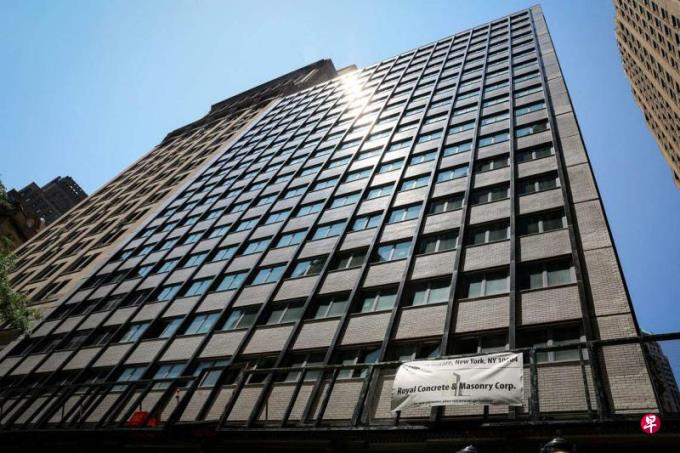
(Washington News) The plunge in commercial real estate prices in major cities in the United States, which led to a reduction in urban taxes and caused concerns about local finance.
The New York Times reported that a 20 -story building in San Francisco, California, traded for $ 146 million (about $ 195 million) 10 years ago, was only 80 million US dollars in December last year; a 200,000 -square -foot office building in Chicago buildingIn 2004, it was traded for nearly 90 million US dollars in 2004. Last month, it was only off at $ 20 million, and the price reduced by nearly 80 %. In Washington, a 12 -story office and retail mixed building of the three blocks of the White House was sold for $ 100 million in 2018The recent transaction price is only $ 36 million.
It is reported that as the trend of hybrid office and long -range work continues, the urban area has become deserted. This significant reduction in price reduction has become the norm of office buildings in the United States.In this way, it is not only commercial real estate investors who have suffered losses, but the big cities are also the first, because real estate valuations have decreased, and tax revenue has been less. This is a financial loss for the municipal government that depends on commercial real estate -related taxes.
President Peskin, chairman of the San Francisco Supervisory Board, said that the office building in San Francisco has been sold sharply, and the decrease in commercial real estate taxation will last for several years. In the next few years, San Francisco will face a financial gap of $ 1 billion."In the short term, this means that the funds of the municipal treasury decrease, and the vitality of the city center is weakened."
Since the crown disease epidemic, it has benefited from the economic rebound and the billions of dollars of rescue funds issued by the US federal government in 2021.With the sewage system, but now the budget began to tighten.A financial report issued by the National Urban Alliance last year stated that the federal government is about to end the issuance of rescue funds, and the weak real estate sales and the decrease in real estate tax have made municipal financial officials start to worry about funding issues.
The research report issued by Gupa, a professor at Stan Business School of New York University at the end of last year, said that from 2019 to 2022, the market value of the national office building decreased by 664.1 billion US dollars.Municipal service or improvement of other types of taxes.However, doing so will force enterprises and residents to move away, further erode tax base, and exacerbate problems.Guba compared this situation to "Urban Doom Loop".
He said that in the past, similar situations occurred. In the 1960s and 1970s, the manufacturers of the Rust Belt closed down, and it was difficult for local governments to balance the budget."At that time, some cities tried to raise taxes and reduce public services, and found that these measures accelerated the faster of the city's population. This problem was more complicated."
Various major metropolises in the United States have made the worst plans.The San Francisco Municipal Government has to postpone the maintenance of urban facilities to save funds; New York City Auditer last summer has proposed the "Doomsday" scenario: the value of the office building in New York City will be 40 % lower than the peak before the crown disease epidemic, which means 2025 in 2025The fiscal budget gap will reach US $ 322 million, and by 2027, the budget gap will reach US $ 1.1 billion.
Washington's office building at the end of last year exceeded 20 %. Some high -quality office buildings in the capital were full of lease billboards. The retail mall in the city center was deserted.Glen Lee, chief financial officer of Washington, predicted last year that due to the decline in commercial real estate tax and other factors, from 2024 to 2026, Washington will face a budget gap of $ 464 million.
Glen Lee said: "Overall, the crown disease epidemic and steering work may have a profound economic impact on Washington."




